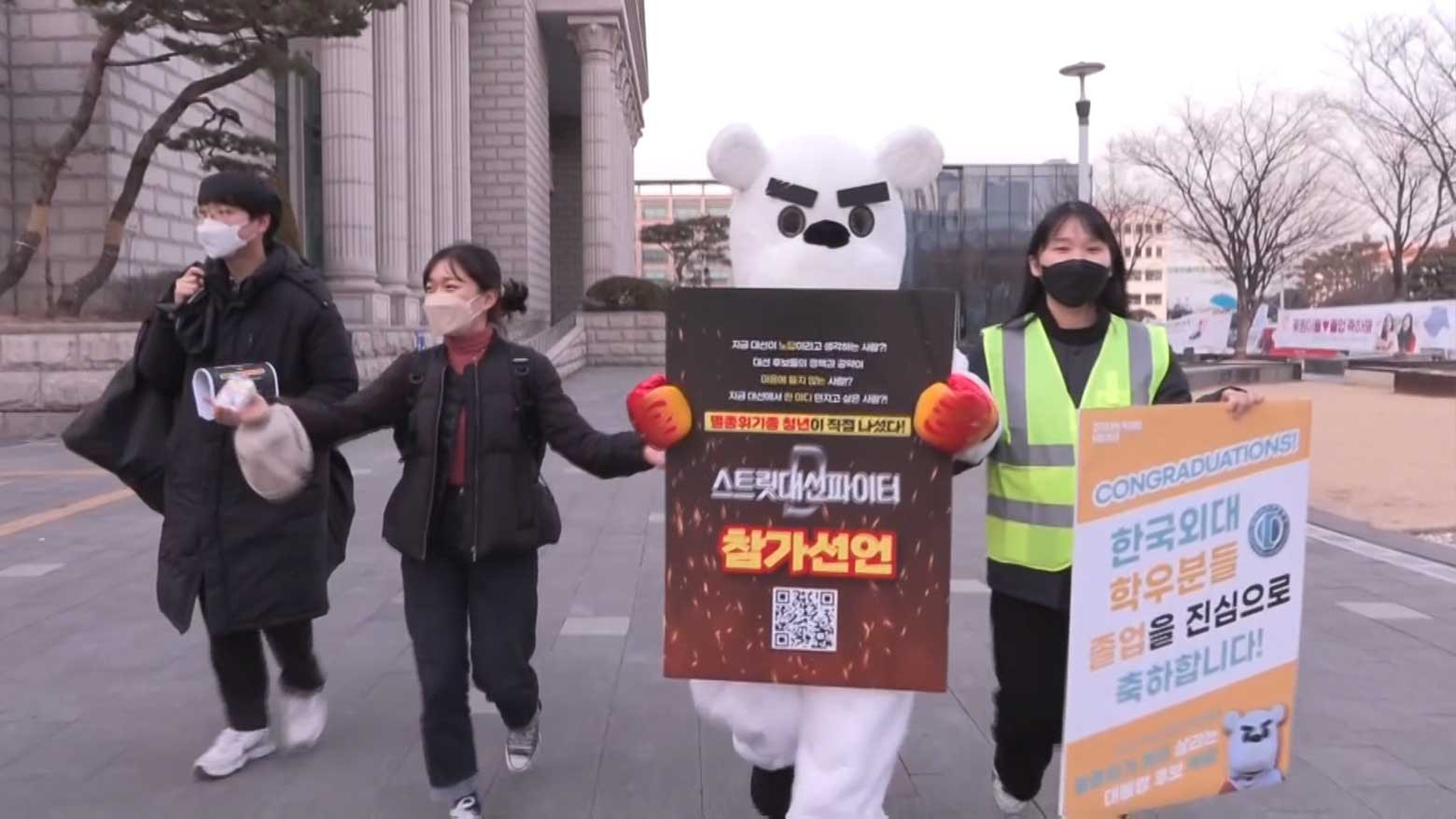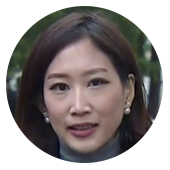A group of young people stroll through a university campus armed with leaflets, stopping to take the requisite selfies and glad-hand prospective voters.
The candidate has a platform and a strategy to engage voters, but this campaign is far from normal.
Lumbering through the student concourse is Parkgom, a cartoonish polar bear wearing flashy red boxing gloves.
"The presidential candidates don't know anything about the reality facing young people," the mascot yells to the crowd during a campaign stop.
The young people gathered around the bear say it represents their interests better than anyone who's actually registered for the presidential ballot.
"The candidates say the youth vote is important, but that hasn't led to any meaningful policy discussions," explains Yu Ki-hwan, a member of one of the 90 student and industry organizations that lend a voice to Parkgom.
He says young voters chose the polar bear for a reason.
After years of studying, they emerge from university to a cutthroat job market and sky-high housing costs.
Young people feel the economic conditions in South Korea are putting their futures at risk, making them feel as endangered as the furry Arctic resident.
Yet Yu says established politicians refuse to take their situation seriously, offering them little more than "slogans."
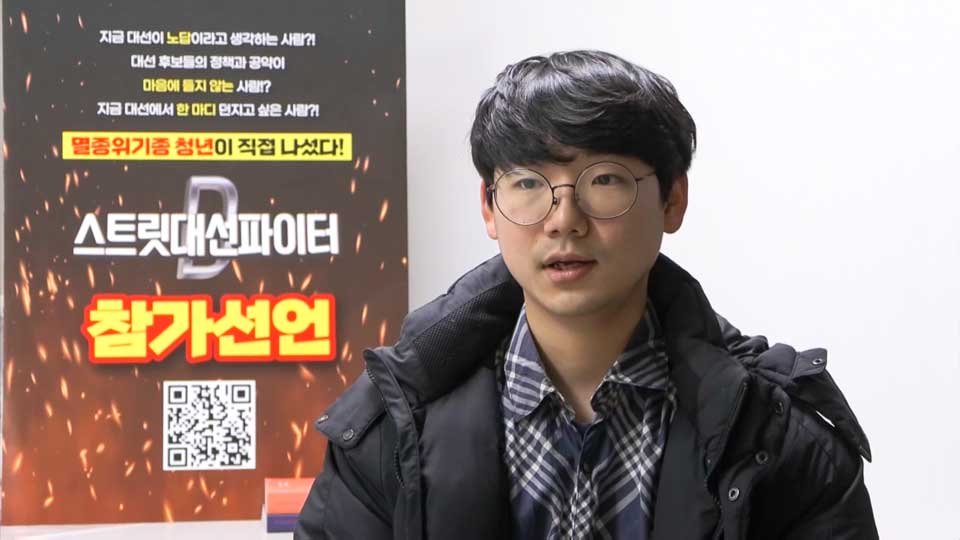
Young voters want action, not slogans
The main candidates are well aware that young people could prove to be important swing voters with the power to tip the scales of the race.
In one campaign video, Lee Jae-myung of the ruling Democratic Party dons a colorful loose-fitting jacket and hat to learn K-Pop dance moves from professional choreographers.
His main rival, Yoon Sku-yeol of the People Power Party enlists some high-tech help. Prospective voters can hear his appeal through short online videos or ask questions to an avatar look-alike, powered by artificial intelligence.
But these young voters say they want more than flashy gimmicks.
Housing, labor policies fail to impress
"Do they really expect us to vote for them based only on memes," asks an exasperated Hong Ye-rin. "I think that's what's most disappointing."
She's one of a handful of people who gathered to watch the main presidential hopefuls battle it out on the debate stage.
As Lee and Yoon outline their policies, the young voters slump into their chairs, occasionally interjecting.
"I'm not sure how providing loans will be helpful. After all, people will still need to pay them back," Lee Eun-gyu calls out after the ruling party candidate promised to expand loans for first-time homebuyers.
The housing crunch is a key concern for everyone.
Under President Moon Jae-in, real-estate prices soared to unparalleled levels. Half of the country lives in the capital region, which is now one of the world's most expensive housing markets.
The price for a condominium has doubled, forcing candidates to pose solutions.
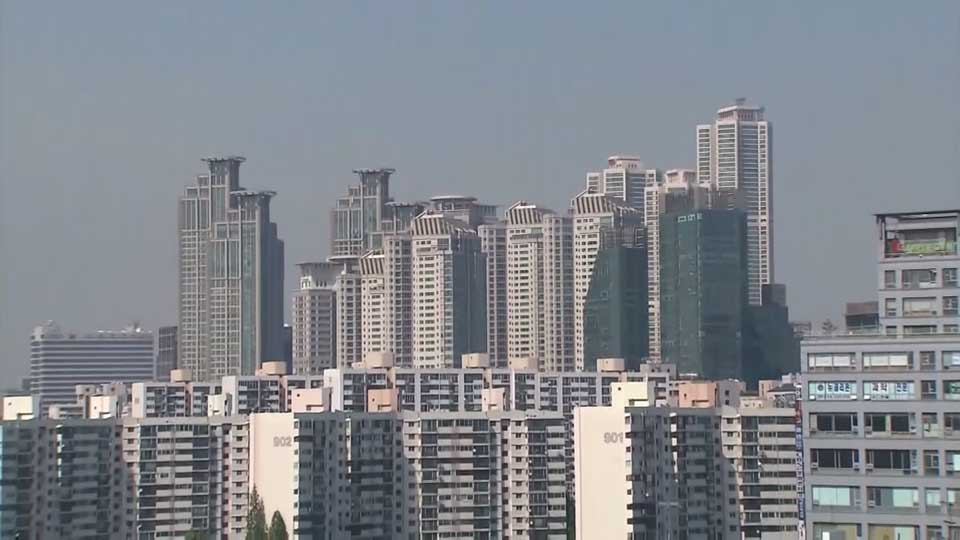
Each says they will build more housing, with Yoon pledging more than 2.5 million additional units and Lee offering up to 3.11 million units. Both say some will be earmarked as affordable public housing.
Students and recent graduates remain unconvinced.
Pae Seohyun needs a solution now. The sophomore student in Seoul couldn't get a spot in the school dormitory "because there's no room," and was left scrambling to find other accommodations.
Others say they find themselves too well-off to qualify for subsidized housing, but too poor to afford to buy.
Further complicating the issue is the recent rise in part-time and contract work, an issue that young voter Lee wants to hear more about.
"They shouldn't just say they'll increase jobs," he says. "What matters is quality. Yoon Suk-yeol needs to focus on how to create good jobs, rather than leaving the issue up to employers to solve."
Sending a message
Frustrated by the debate, Parkgom's supporters hold their own event.
One by one, they take to a makeshift boxing ring to debate their own policies. After each new platform position is called out, members of the audience wave lights to show their support.
They agree society needs an overhaul.
"Our society needs a president who will change the system that drives passionate young people toward dangerous, cheap labor," says one of them, describing the housing situation as an "absurd reality" facing young people.
Despite believing that neither of the main candidates deserve their vote, they remain convinced their votes have power and plan to show up to the polls in force.
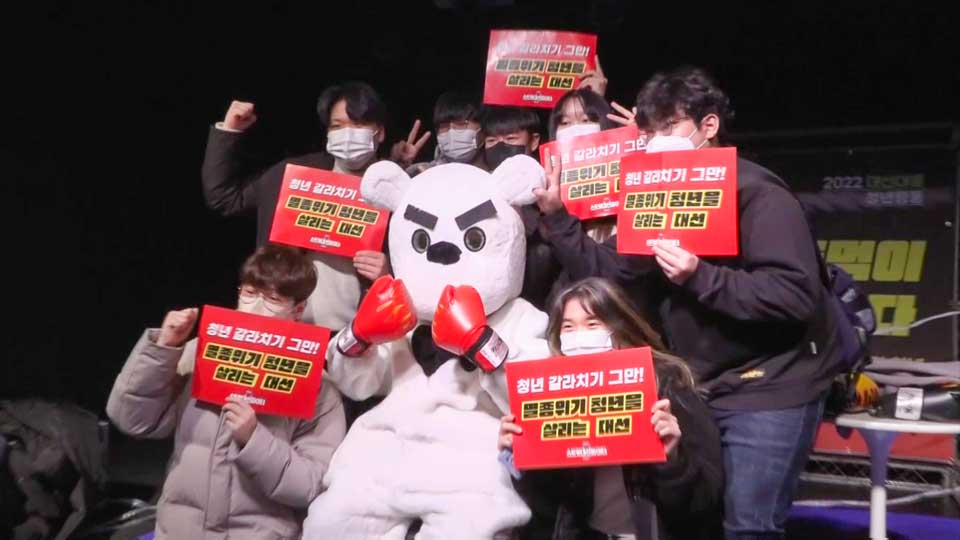
"We need to show the political establishment and candidates that they cannot keep behaving in a way that dismisses the needs of young people," said Yu.
"Regardless of whether they can win or not, we'll vote for whichever candidate we can really get behind."
